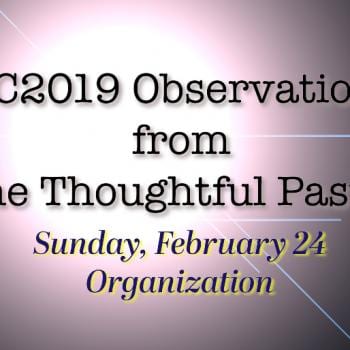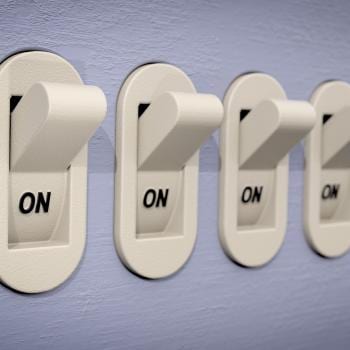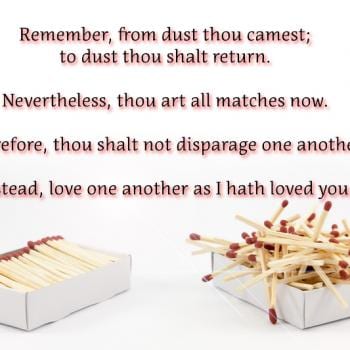Trust serves as the glue that holds any society together. We trust that others will obey the traffic laws, will pay their fair share of taxes, will be faithful to their spouses, will respect one another’s property, will contribute a proportionate amount to the common good.
When that trust is betrayed, the wounds go deep and heal poorly, if at all.
In 2015, I was in Costa Rica for a Pacific Coast sunset wedding at a small, remote place called Samara Beach. No resort town here, despite the spectacular beach. The long, occasionally tortuous drive from the four-gate airport in Liberia has limited the construction of luxury, all-inclusive resorts to waterfront spots far closer to the airport.
Instead, Samara Beach is a small, friendly, sleepy between-second-and-third world town. The two hotels in town that house the few North American and European tourists are also the only places in town with air-conditioning. Because of heat and humidity, life is lived outdoors.
I wrote about the worship here, but the most impactful part of the week for me was a flash insight as to why fixing or healing or bringing back into any sense of unity The United Methodist Church has become, I believe, impossible.

© Ankevanwyk | Dreamstime.com – Dogs Playing Photo
Multiple dogs inhabit this beach town. Most are owned, some are not. Hardly any are leashed.
All wander freely around the open-air restaurants that populate the beach. Diners casually feed them or ignore them as they wish.
Occasionally, owners would take their dogs to the ocean for play with balls and sticks. Generally, when doing so, several of the wild dogs would show up for the fun and games.
They never fight. The dogs don’t feel it necessary to aggressively defend their territories. They simply happily join in their doggie games and then move on when the games are over. Wild and tamed have figured out a way to trust each other.
Toddlers also wandered around the bars. They walked barefoot over sharp stones. They explored steep concrete steps and learned how to climb them without falling.
The littles ones often wore nothing but a t-shirt–the nether ends exposed for easy elimination. Just as I never saw a dog-fight, I also never heard a baby cry the entire week of my residence. My friends there said that adults often “borrowed” babies for a period of time, i.e., caring for them and enjoying their antics and explorations.
This, I believe, is a community built on trust, with that trust held together by the Roman Catholic church where nearly everyone gathers for worship weekly.
Please don’t get the idea that I found the Utopian community. All houses have barred windows as a protection against theft. Small houses have multiple people living there. We were warned to guard electronics carefully. The tourist business that does trickle in here sustains the economy and gives the local artisans and shop-owners badly needed income.
Medical care is free, but I noticed a big need for more adequate dental care. I’m sure multiple societal problems persist–humans do live here, after all.
Nonetheless, I did perceive a generalized sense of trust. Trust serves as the glue that holds any society together. We trust that others will obey the traffic laws, will pay their fair share of taxes, will be faithful to their spouses, will respect one another’s property, will contribute a proportionate amount to the common good.
When that trust is betrayed, the wounds go deep and heal poorly, if at all.
The betrayals hit everyone, no matter what “side” one sits in.
To overly simplify the situation in the UMC, the more conservative arm rightly feels betrayed when the Book of Discipline and what they see as clear biblical truth is simply disregarded.
The more liberal arm rightly feels betrayed when people of sacred worth are kept from full participation in the church by what they see as inappropriate uses of Scripture, pointing to our past as excluding women and people of color by using a similar hermeneutic grid.
Everyone is right. Everyone is also wrong. In our perceived rightness, we have transgressed the law and broken trust. Now any hope of trust is nearly completely lost in The United Methodist Church.
Can it be restored? I doubt it. We’re too big, too spread out for real mutually beneficial dialogue. We have too many written rules, and not enough relationship. We have little of the glue that holds a local community together such as I found in that beach-front town in Costa Rica. The very diversity we have sought is now bringing us down. We’re setting up fortresses against one another rather than building bridges of reconciliation.
I have seen the various proposals to keep us together by forming different jurisdictions–a “separate but equal” solution. And while I very much appreciate the hard work that went into this particular plan, the “restore and release plan,” it also reminds me of the normal sibling squabbles I used to have with my sister. She and I often unhappily shared a room growing up, and we would periodically draw up a set of rules as to who could touch what in order to try to keep peace between us. Never worked. They never do.
I have often said that what Jesus ultimately did when hanging on that cross was to take upon himself the fullness of betrayal and all the pain it engenders. And then he said, “Father, forgive them. They don’t know what they are doing.”
The act of forgiveness for the deep wounds of betrayal is the greatest Christ-act any of us can ever perform. But anyone who has ever actually forgiven a betrayal knows the complex forest littered with invisible land mines one has to travel to regain a safe level of trust again.
And that is why I say it is probably impossible now. The kind of emotional and spiritual maturity it takes to regain trust is not being displayed on either side of the argument. Between Bishops doing an “In your face” flaunting of the rules to churches taking their marbles home until they get their way, we have sunk into a mire of immaturity and spitefulness.
I have maintained since the Judicial decisions of 2012 that the UMC is no longer fixable. Our theology of grace has been undermined by so many forces, all full of justifying rationales, that we are more than blind. We cannot reach across the divides without bringing out the hidden axes to chop off the hands of those on the other sides of our perceived chasms.
It is fixable only by renewal of spirit, not by reform of rule. Renewal of spirit comes when we humbly repent of our sins: sins of pride, intentional blindness, arrogance, envy, ambition, hubris, to name a few.
I hope I’m wrong but am pretty sure I’m not.












